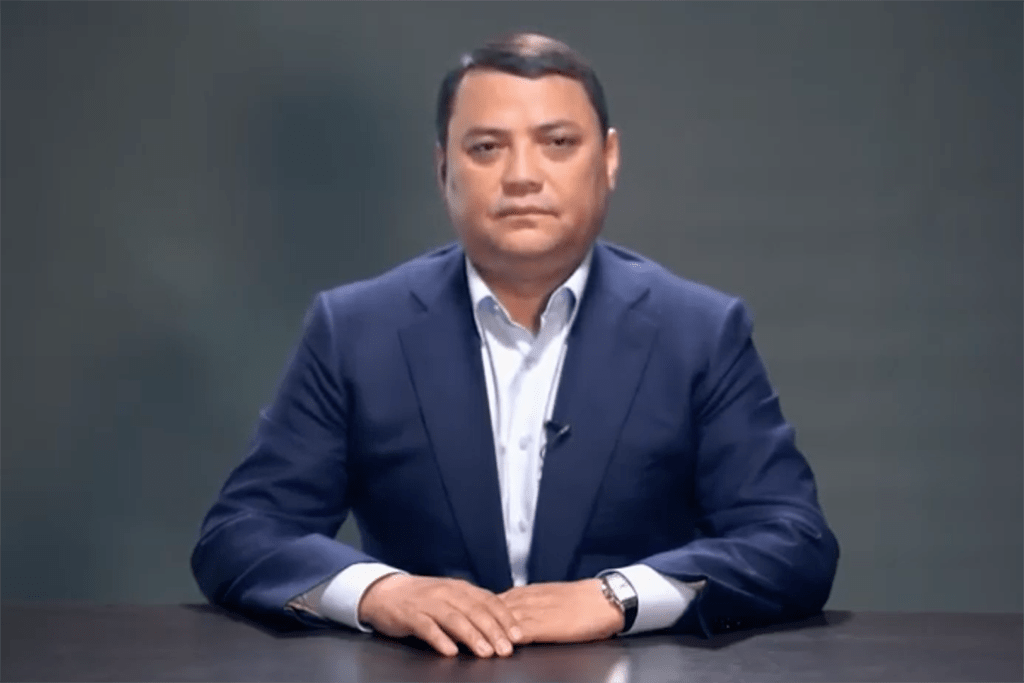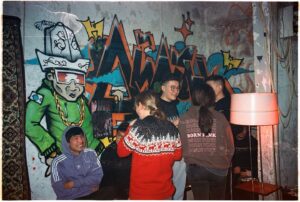The Matraimov corruption scandal has had a significant resonance across Kyrgyz society and has been a driver of ongoing protests in Kyrgyzstan. But the question of whether Raimbek Matraimov, a former customs official implicated in a corruption scheme, will face justice is yet to be answered.
The former deputy head of Kyrgyzstan’s customs service Raimbek Matraimov will spend two months in custody, a Bishkek court ruled. He was taken in for questioning by the Kyrgyz State Committee for National Security (GKNB in Russian) on 18 February 2021.
It comes after a first sentence for corruption on 11 February, resulting in a fine. On 14 February 2021, the protesters at a weekly march against corruption and changes to the constitution also expressed outrage about the sentence, which they consider too lenient. In response, in a segment since deleted, state television broadcasts attacked these protestors as law-breakers and destabilisers.
Want more Central Asia in your inbox? Subscribe to our newsletter here.
Raimbek Matraimov is at the heart of a corruption scandal after journalistic investigations in 2019 and 2020 revealed his role in a money laundering scheme.
The 0.00043%
Raimbek Matraimov pleaded guilty to corruption charges on 11 February. Instead of the decade-long sentence possible under the “Corruption” article, Matraimov was fined 260,000 som (£2,200) on account of having already paid back 2 billion som (£16.9 million) in damages to Kyrgyz authorities.
This figure represents 0.00043% of the approximate £500 million that his network is estimated to have illegally funnelled out of the country. The Kyrgyz news outlet Kloop reports that Matraimov and his lawyers refused to comment on the proceedings and the sentence after the session. Furthermore, frozen bank accounts and confiscated property was returned to him and his family, the Kyrgyz news agency 24.kg reports.
Questions remain: why was he originally only tried under the “corruption” article, and not also under the “illegal enrichening” article? His wife Uulkan Turgunova’s luxurious holidays, taste for designer fashion, and numerous stays and links to property in Dubai, all shared on social media, exceed Matraimov’s stated income of $1,000 (£700) per month during his tenure, the investigations show.
In an interview with Novastan, Asel Doolotkeldieva, a Bishkek-based researcher on electoral politics and the sociology of protests, said that such a lenient fine was a “slap in the face to the Kyrgyz people”. She evoked two notorious cases of ordinary citizens being charged and sentenced more heavily for much smaller offences: one to five years of prison for stealing medication because they couldn’t afford medical treatment for their family, and another sent to prison for stealing a chicken because he had nothing to eat.
Doolotkeldieva suggests that, in this light, Matraimov’s sentencing is “scandalous”, and that the speed of the hearing reflects a “lack of due investigation”. The decision itself, she said, shows that the “court system is not independent and participates in the political machine of the rulers.”
Raim Million
On 9 December 2020, Matraimov was placed on the US Magnitsky Sanctions list for his role in the funneling of hundreds of millions of dollars abroad. The sanctions followed comprehensive investigations published in 2019/2020 by Radio Azattyk (the Kyrgyz-language branch of Radio Free Europe), Kloop, Bellingcat and the Organised Crime and Corruption Reporting Project (OCCRP) revealing this money laundering. The reports outlined how Matraimov, over a five year period (2011-2016) had enabled and benefitted from a smuggling empire run by the Uyghur Chinese Abdukadyr family and their Abu Sahiy cargo empire. Kloop, 24.kg and RFE/RL were subsequently brought to trial for libel in January 2020 Kyrgyzstan by Matraimov.
The mysterious Abdukadyr family’s highly organised and highly profitable scheme revolved around bringing undeclared and falsely labeled goods from China to market in bazaars across Central Asia and Russia via Kyrgyzstan. According to the investigations, Matraimov was responsible for distributing the Abdukadyr bribes in exchange for ensuring that the goods would pass through northern and southern terminals in the country. His involvement in this network of patronage and corruption earned him notoriety and the nickname “Raim Million” for his wealth.
It was Aierken Saimaiti, a Uyghur Chinese-born businessman with Kazakh citizenship, responsible for smuggling £500 million out of Kyrgyzstan for the Abdukadyr family, who detailed the scheme and provided documentation to journalists. Having fled to Istanbul in 2017, Saimaiti was murdered in an internet cafe in Istanbul in October 2019.
The state of affairs
The lenient home arrest Matraimov faced after his original arrest, despite “huge resonance in Kyrgyz society and heavy suspicions regarding the possible damage he has done to the Kyrgyz state and economy,” and his lenient sentencing, shows the extent of his influence over the judiciary and the regime, Doolotkeldieva argues.
Read more: Kyrgyzstan: governing party wins “dirty” parliamentary elections
Indeed, the OCCRP investigations showed that the Matraimov clan was heavily involved in Kyrgyz politics. Notably, Raimbek Matraimov’s brother Iskender ran for parliament as a member of the Mekenim Kyrgyzstan party in October 2020’s annulled parliamentary election. Though Iskender Matraimov is the politician, Raimbek, the report states, “is widely assumed to exert heavy influence behind the scenes”. But the family also makes use of the economic, social and political influence of the charitable activities of the Ismail Matraimov Foundation to support the party’s electoral campaigning.
Kyrgyzstan’s recently elected president Sadyr Japarov initially promised to imprison Matraimov, but later reneged on this promise, reasoning that such a decision would be less beneficial to the state’s treasury than having him paying damages. He commented that this was “only one episode” and that inquiries had been sent to neighbouring countries and Dubai relating to the former official’s activities, bank accounts and property. If information is received, he concluded, then investigations will continue.
Doolotkeldieva expressed her opinion that “the way it has been dealt with so far leaves a lot of doubt as to whether the case will continue further or not”. However, she added that it is possible the investigations would continue due to Japarov’s as yet not fully consolidated rule, which may be challenged by “criticism and vocal opposition from society“.
The constitution and the case
This case and the resonance it has had in Kyrgyz society is happening in the background of an ongoing project of constitutional changes under Japarov. Critics such as the rights defense clinic Adilet argue it will significantly weaken Kyrgyzstan’s parliament by introducing a people’s council and concentrating power in the presidency, eroding checks and balances and thus endangering stability, the rule of law and the protection of human rights.
Read more: Rise and fall… and rise: the career of Kyrgyzstan’s Sadyr Japarov
The clinic also highlighted the potential for infringements on the rights of free expression and media in the proposed measure against publications and public events contrary to the “generally recognised moral values of the Kyrgyz people”.
“Civil society will not leave this case alone. And hopefully civil society will be strong and robust enough to be able to exert continuous pressure on the authorities,” Doolotkeldieva said. Perhaps it is this pressure that led to the events of 18 February, when Matraimov was taken in for questioning and arrested in relation to an ongoing probe into money laundering, though pro-Matraimov protests organised in Biskhek and Maitraimov’s home region of Kara-Suu are a reminder that his influence is still significant.
Whichever direction they take, the developments of the case may provide an indication of the direction of Kyrgyz politics under Japarov.
Cameron Evans
Writer and editor for Novastan
For more news and analysis from Central Asia, follow us on Twitter, Facebook, Telegram, Linkedin or Instagram.
 Matraimov’s millions: the story of a Kyrgyz corruption scandal
Matraimov’s millions: the story of a Kyrgyz corruption scandal 



